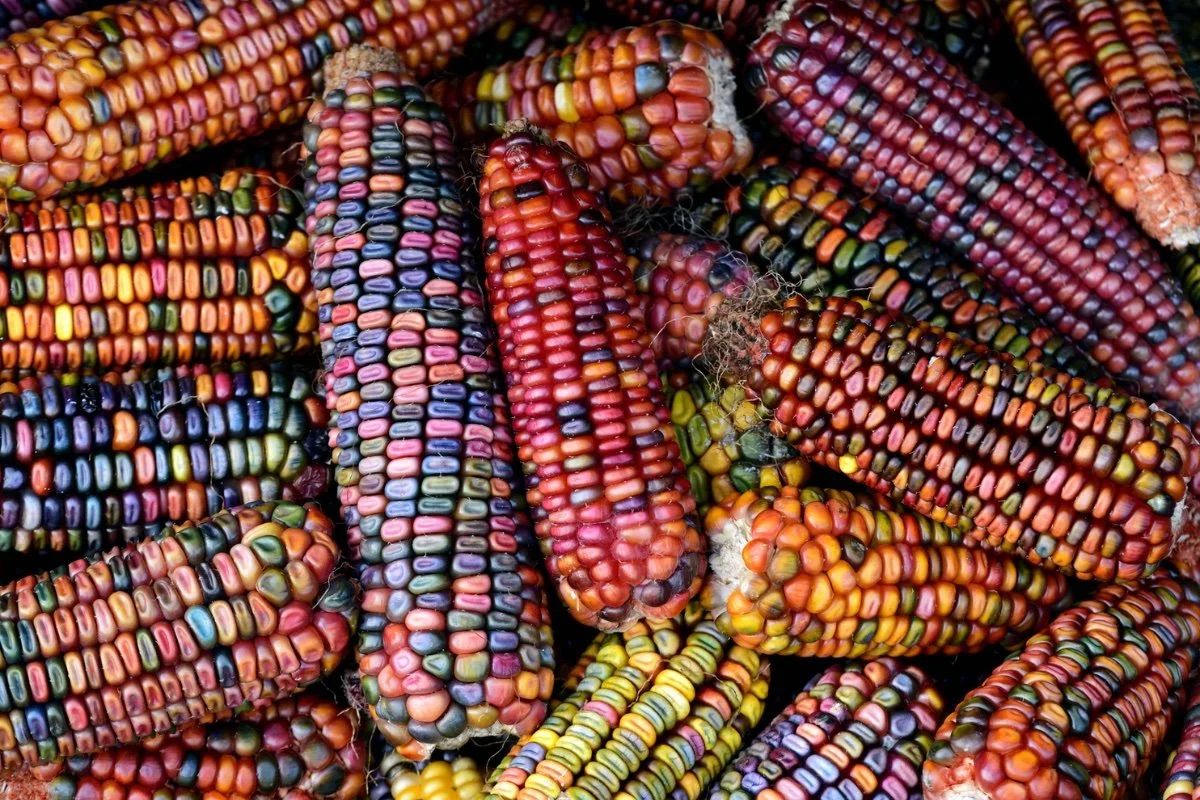Traditional Seed Bank
Huya Aniwa has started a seed bank to preserve Indigenous heritage and sovereignty and support Earth’s rich biodiversity.
Biodiversity begins with the seeds. The last generations have seen the most significant biodiversity loss in humankind's history. People today are no longer acquainted with the hundreds or even thousands of varieties of edible plants our great-grandparents were once familiar with, and many Indigenous cultures are the guardians of today as part of their tradition.
Huya Aniwa has started a seed bank through our collaborative relationships with grassroots Indigenous projects worldwide. In addition to native trees and sacred plants from Mexico, plants from Peru, the Amazon rainforest, and beyond grow on our land. We aim to continue adding to and feeding our heirloom seed bank to spread these seeds across other communities and feed the region.
Heritage seeds are treasures lying deep within Indigenous collectives, often in the caring hands of women or dedicated gardeners who relish passing on such diversity and quality from time immemorial. The main reason for the loss of such richness is the poverty engendered by Western culture’s appropriation of the Earth’s resources. Cash crops require a standardization of quality, color, and kind. As a result of this standardization, industrialized grains and foods have undergone an excruciating selection, hybridization, or even genetic manipulation at the seed level.
Indigenous cultures have safeguarded a great variety of heirloom seeds from each crop they grow in their gardens. They have equally aided in the spread of seed varieties in nature with the caretaking practices they steward in the ecosystems they inhabit. As part of their heritage, Indigenous peoples have maintained important seed banks. Establishing seed banks to preserve Indigenous heritage and sovereignty is perhaps one of today's most critical actions to save the Earth’s biodiversity.
If you are interested in investing in our seed bank program, please contact our team at: info@huyaaniwa.org.

